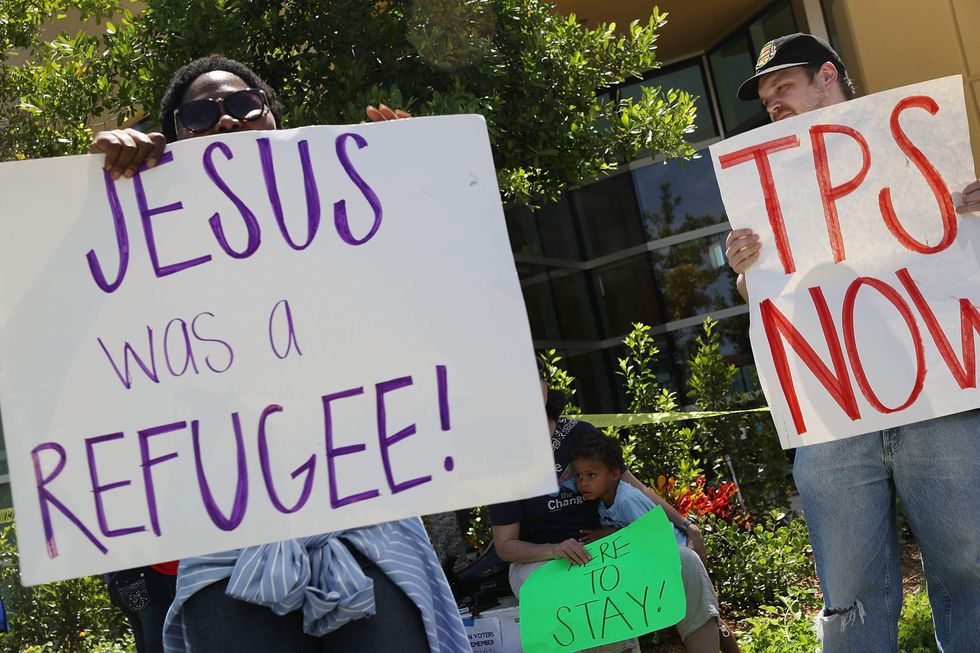
The Department of Homeland Security must decide whether or not to extend temporary protected status for several African and Central American nations in the next few months. (Joe Raedle/Getty Images)

The Deferred Action for Childhood Arrivals (DACA) program has some of the top headlines right now, but a less-discussed immigrant class is facing an uncertain future in the coming months as well.
The Trump administration must decide whether to renew temporary protected status for several countries, which means thousands of immigrants could be sent back to their countries.
Immigrants who receive temporary protected status get work authorizations and protection from deportation. They come from countries with extraordinarily difficult living situations due to civil war, natural disaster, epidemics or other circumstances. They have to show that they have continually lived in the U.S. since the event, which triggered the status.
As long as they need to, really, as long as the Department of Homeland Security makes the decision to extend temporary protected status for these countries. Some TPS recipients have been here 20 years. Countries, particularly poor ones, that are war-torn or ravaged by natural disasters often stay that way for years after.
Some key deadlines are coming up. Homeland Security must decide on Sudan (1,039 TPS immigrants) and South Sudan (49 TPS immigrants) at least 60 days before the Nov. 2 expiration date.
U.S. Citizenship and Immigration Services issued a statement to CNN saying they've already decided on those two countries, and that decision it will be published "shortly."
Temporary protected status for Haiti (58,700), Honduras (86,000) and Nicaragua (5,300) expires in January, so Homeland Security has to make the call on those nations in November. El Salvador's (263,000) will expire in March.
Many TPS immigrants have been in the United States a long time; long enough to build lives and truly call the U.S. their home.
Sudan was first designated as a TPS country in 1997, Honduras in 1998 and El Salvador in 2001. It could be devastating and difficult for people who have resided in the U.S. for 20 years to start their lives over back in struggling countries that is no longer familiar to them.
It could also be costly to deport thousands of work-eligible immigrants. Check out this analysis by the Immigrant Legal Resource Center for the details, but they said it would cost billions of dollars to deport them and billions more lost in Social Security contributions, gross domestic product and employer turnover costs.
Temporary protected status means exactly what it says: it's temporary. Recipients of this status understood when they came to the United States that their stay was not meant to be permanent.
Some TPS immigrants are otherwise undocumented, and if it is determined that their countries have suitably recovered from whatever conflict or disaster triggered TPS, they will be notified with enough time to make arrangements to return to their home country.
Immigration from Central America has been blamed by some, including President Donald Trump, for an increase in gang violence, specifically from MS-13. Advocates of ending TPS for countries viewed as the source of this gang activity view it as a matter of pubic safety and homeland security.
The issues surrounding TPS immigrants are similar to those surrounding DACA recipients, who could face deportation as early as the next six months.
As much attention as DACA has gotten in recent weeks, and will get going forward as Congress considers legislative action, the TPS immigration issue calls for just as much attention. It is a part of the ongoing debate about the direction of immigration policy in the United States
Regardless of which side of the issue you're on, what happens with this immigrant class has significant economic, political and humanitarian implications.